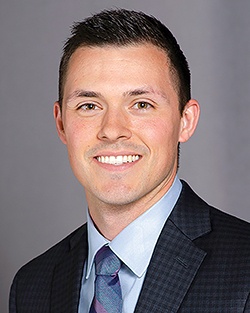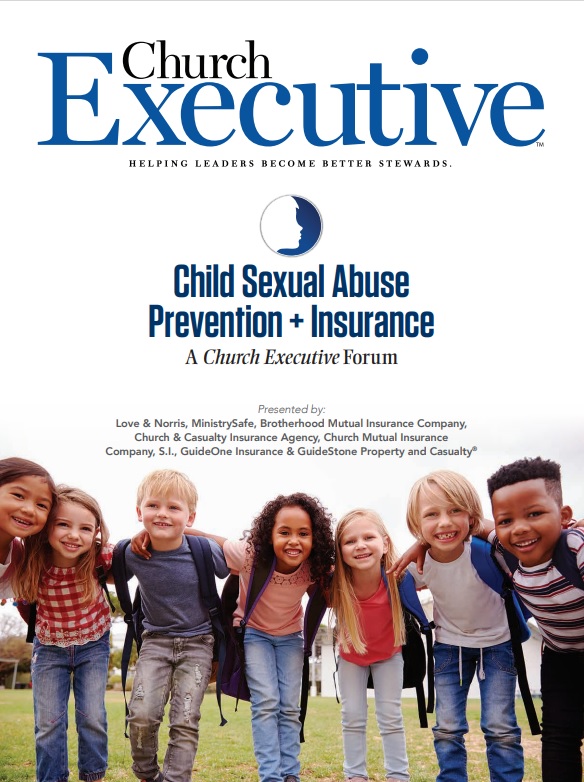
 It’s the call no ministry leader wants to get — that a church employee or volunteer has been accused of sexually abusing a child.
It’s the call no ministry leader wants to get — that a church employee or volunteer has been accused of sexually abusing a child.
Unfortunately, predators see churches as an easy target. That’s why it’s important to acknowledge and plan for the possibility that child sexual abuse could happen at your ministry. Your insurance company should have resources available to help you not only with prevention but also response.

Associate Corporate Counsel
Brotherhood Mutual Insurance Company
Begin with a plan
First, let’s talk about developing a child abuse prevention program that includes robust employee and volunteer screening procedures, as well as policies and procedures on how and when to report suspected abuse to authorities. This is integral not only to maximizing the safety of children, youth, and vulnerable adults you serve, but it’s also key in defending a ministry’s reputation if a predator is discovered.
Brotherhood Mutual® has a free comprehensive eBook available at brotherhoodmutual.com/guidelines to help your ministry develop or improve its child abuse prevention plan. Child Protection in a Ministry Environment includes sample policies and documents.
Additionally, our Legal AssistSM team will review your plan for free and is available to help with general legal questions. Legal Assist is available to all ministries — you do not have to be a customer to use it. Visit brotherhoodmutual.com/legal-assist.
Beyond insurance basics
Even the best prevention measures do not totally eliminate the risk of abuse. You can protect your ministry by working with your insurance company to make sure you have the right coverages in place in case this scenario ever becomes a reality. Check to make sure your ministry has liability insurance that covers not only claims of child sexual abuse, but also sexual misconduct and harassment. If your ministry is named as part of a civil lawsuit, sexual abuse and misconduct insurance can help you hire an attorney to defend the ministry and provide money to pay for a court judgment or settlement.
Caring for victims

In addition to causing immediate physical harm, the trauma of sexual abuse can inflict devastating, life-long effects. The child can benefit from immediate counseling from a professional that specializes in this area.
Ask how your insurance company can assist you in caring for someone who is a victim of child sexual abuse. Are there funds available so you can offer outside counseling services?
Why is offering outside providers for counseling necessary? Even if your ministry staff have specialized training in this area, depending on the situation, trying to provide this support in-house may not be appropriate if the abuse was sustained in the church or the allegations involve a church leader, employee, or volunteer.
Abuse that occurs within a ministry setting can cause overwhelming obstacles to the child’s overall faith development as well as trust issues regarding church. The way you respond, can have a direct impact on both and can be a tangible demonstration of your ministry’s commitment to protecting the minors in your care.
Hiring communication specialists
Knowing what and how to communicate with your people is not only heart-wrenching but complicated. A church is a place of trust, and allegations of abuse can cause mistrust and hurt among your ministry’s employees, your congregation, and your community. And many times, when one case of abuse is reported, many more victims will come forward. This can quickly become overwhelming for ministry leaders to handle alone.
Ask your insurance provider if there are funds available to hire a PR consulting firm experienced in working with ministry or other clients who have gone through a similar experience. A PR professional can help you communicate your ministry’s concern and care for the victims and families in a way that does not invade their privacy or interfere with law enforcement investigations. They can help you navigate requests from media, concerns from your congregation, and questions from the general public.
Kyle Johnson, JD, CPCU works within the legal department at Brotherhood Mutual and assists ministries with risk management issues, focusing on child protection, worker screening, faith-based decisions, church governance, and insurance coverage.


